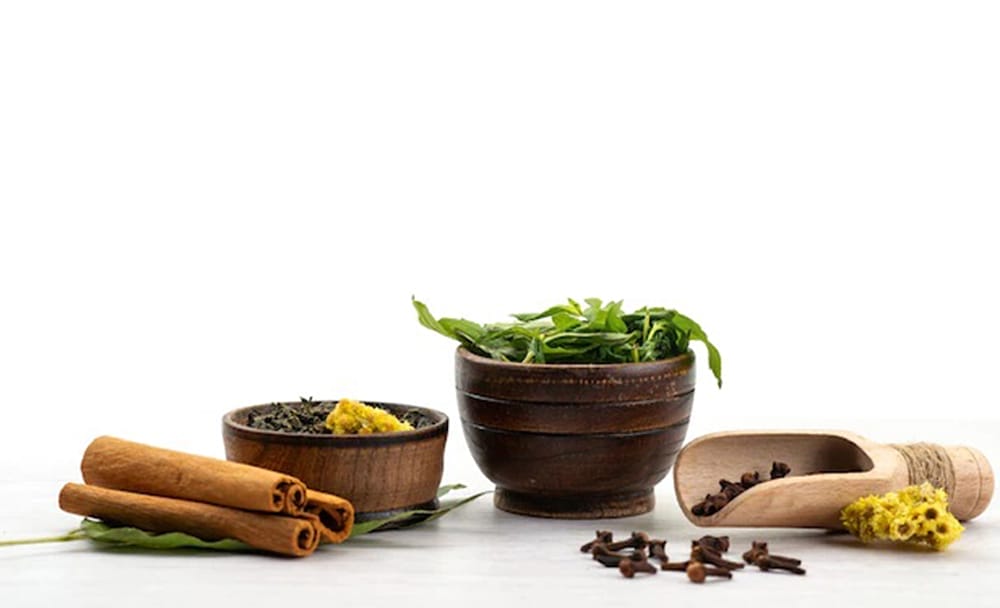This article is reviewed by Dr. Ashwini
योगश्चित्तवृत्तिनिरोधः
Yoga is restraining the mind-stuff from taking various forms
Psychological or mental health is as important as physical health. Ayurveda promotes maintaining unity between mind and body for overall health. Therefore, in Ayurveda, mental disorders or Manovikar are considered health conditions and are not stigmatised. There are also many tips, guidelines and recommendations mentioned in Ayurveda to balance the state of your mind and boost your mental health.
What Is Ayurveda’s View On Mental Health?
According to Ayurveda, a balance of Doshas and a pleasant state of mind are the two factors responsible for maintaining good mental health. Any imbalance in Doshas can affect your mental health and cause mental disorders. For example, Vata imbalance can cause anxiety and phobias, Pitta imbalance can lead to anger and obsession, whereas Kapha imbalance is associated with depression. Therefore, the first and foremost principle of Ayurveda is to maintain a balance of the Doshas
Similarly, the state of mind also plays a leading role in defining your mental health. According to Ayurveda, there are three states of mind: Sattva, Rajas and Tamas. ‘Sattva‘ is a state of good mental health. It endows you with happiness, wisdom and productivity. On the other hand, ‘Rajas‘ is in an ambitious and restless state of mind, and ‘Tamas‘ is a lethargic and dull state of mind. When Rajas and Tamas are active, mental health gets affected, and mental disorders develop.
Ayurvedic Tips For Improving Mental Health
- Increase Sattva
Ayurveda recommends increasing Sattva to balance the state of mind. There are many ways to improve Sattva, such as:
- Yoga And Pranayama: It helps to relieve stress, anxiety, panic and help deal with depression.
- Meditation: Meditation is highly beneficial in treating mental disorders and improving mental health.
- Sattvic Foods: Sattvic diet includes natural, fresh, easy to digest, light foods that are cooked with moderate spices. It favours fruits, vegetables, whole grains, lentils, etc.
- Sadvritta: Sadvritta means a good code of conduct. It involves healthy practices such as patience, regular exercising, meditation, a healthy routine, etc. It also promotes nourishing hobbies such as maintaining a journal, reading, etc.
- Get Adequate Sleep
According to Ayurveda, sleep or Nidra is one of the three pillars of health. Ayurveda says that inadequate sleep can impair cognition and focus and increase anxiety. Therefore, you should follow the Dinacharya practices of Ayurveda that help improve sleeping. Some of these guidelines are:
- You should sleep before 10 pm.
- Avoid using technology before a few hours of sleep.
- Eat at least 3-4 hours before bedtime.
- Avoid daytime sleeping. It can increase Kapha or lethargy.
- Wake up early before sunrise, ideally before 6 am.
- Eat A Dosha-Specific Diet
Aahar is the next pillar of health, according to Ayurveda. Ayurveda recommends eating a diet that helps balance your aggravated Dosha or which suits your Prakriti.
- Include Herbs
There are many herbs in Ayurveda that improve mental health and treat mental health disorders, such as anxiety and depression. Some of these herbs are Brahmi, Amalaki, Ashwagandha, etc. However, you must consume these herbs only after consulting an Ayurvedic doctor.
- Try Cleansing Therapies
Ayurveda mentions many cleansing therapies, such as Abhyanga, Nasya, Shirodhara, Panchakarma, etc. These therapies help stimulate the digestive fire and remove Ama from the body, a few of the leading causes of mental ailments.
- Practice Pratyahara
Pratyahara means sensory withdrawal. It helps to avoid negativity and digital overload to soothe your senses. You can include the following the practice to soothe and stimulate specific senses:
- Akshi Tarpana and colour therapy for your eyes (vision)
- Nasya and aromatherapy for your nose (smell)
- Abhyanga and Shirodhara for your skin
- Karna Poorna and chanting for your ears (hearing)
- Oil pulling and tongue cleaning for your tongue (taste)
- Improve Immunity and Ojas
By boosting immunity and Ojas, you improve mental resilience. Therefore, Ayurveda highly recommends taking rejuvenating therapies, eating a nourishing diet and drinking herbal teas to improve your Ojas
The Final Takeaway
According to Ayurveda, mental health is extremely important for well-being, longevity and happiness. Therefore, Ayurveda recommends many guidelines for improving mental health. It promotes activities to improve Sattva and keep your Doshas in balance.
FAQs
Can Ayurveda treat anxiety and depression?
Ayurveda offers a protected natural remedy for fighting stress, anxiety and depression. It helps in relieving sleep deprivation and improves mood.
Which Ayurvedic herb is best for anxiety disorder?
Herbs such as ashwagandha, brahmi, mandukaparni, yashtimadhu, jatamamsi, amla, and vacha have been found effective in reducing symptoms of anxiety and relaxing the body and mind.
Which foods are sattvic food?
Sattvic foods can be categorised as fresh fruits and vegetables, most whole grains, legumes and nuts. How they are eaten, for example, cooked versus raw, can make a difference in whether they add sattva or rajas to the mind and body.
References:
- https://www.halepule.com/guides/ayurveda/sattvic-foods#:~:text=Sattvic%20foods%20can%20be%20loosely,to%20the%20mind%20and%20body.






















